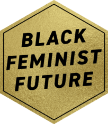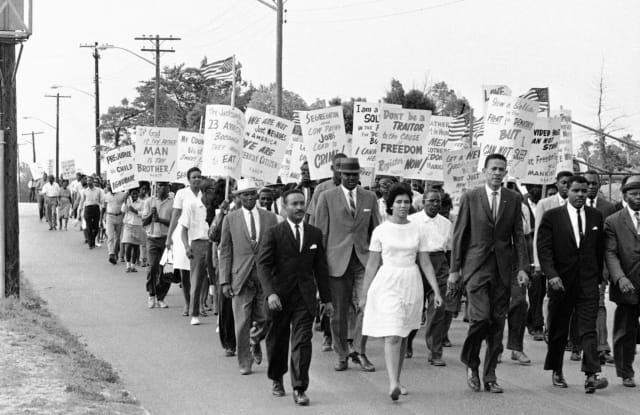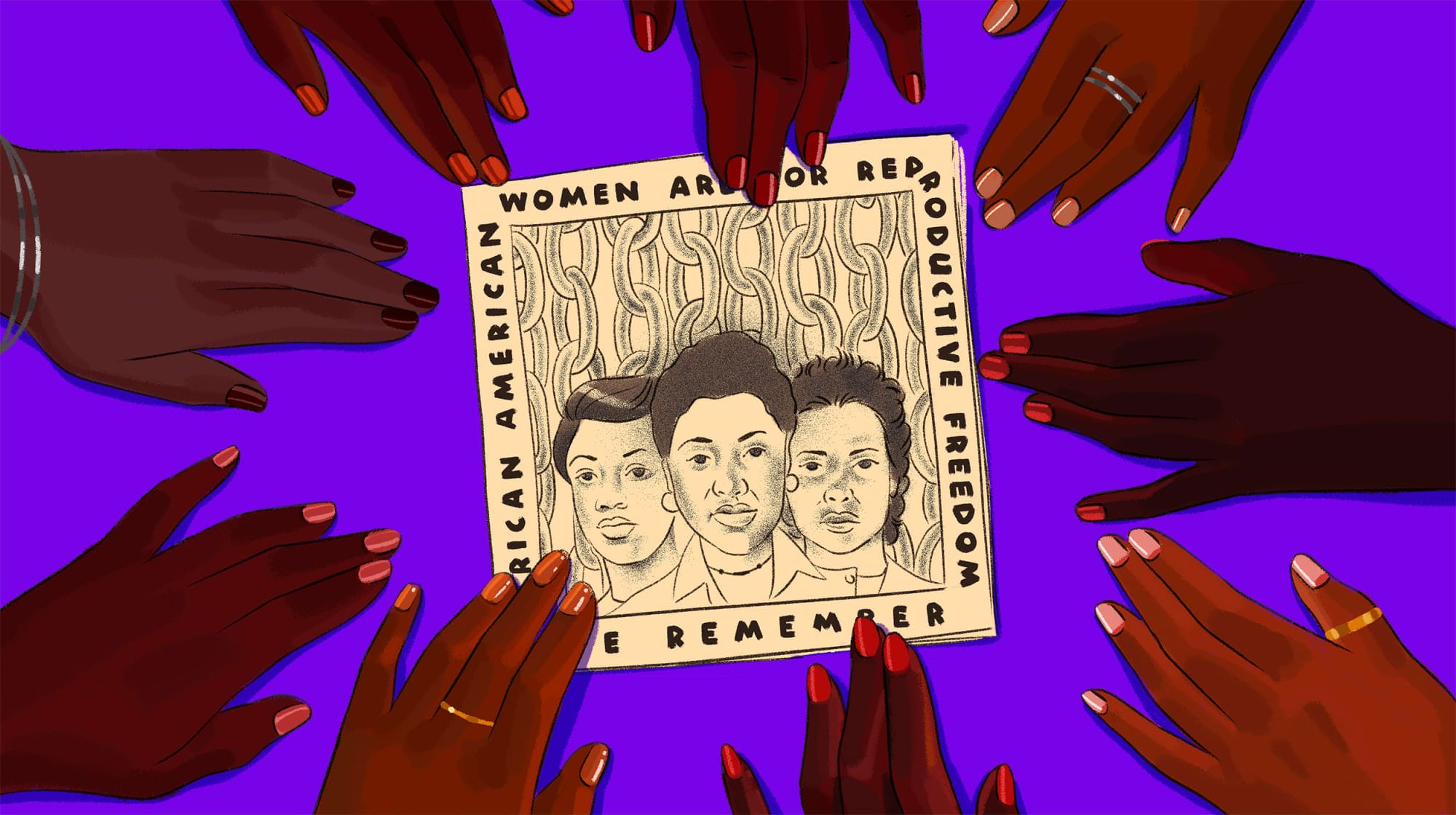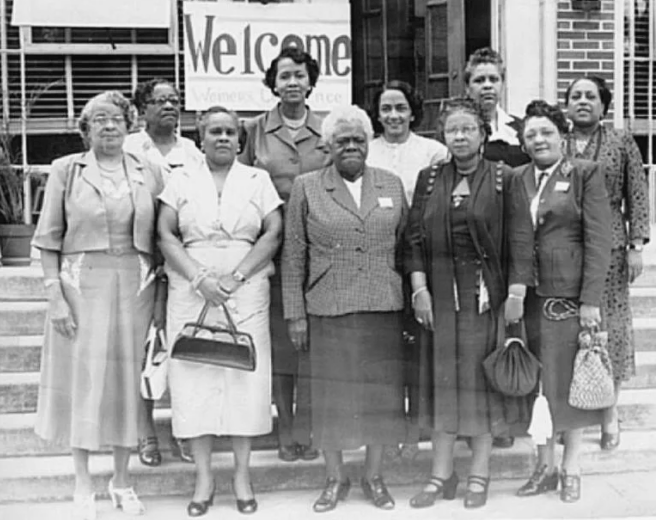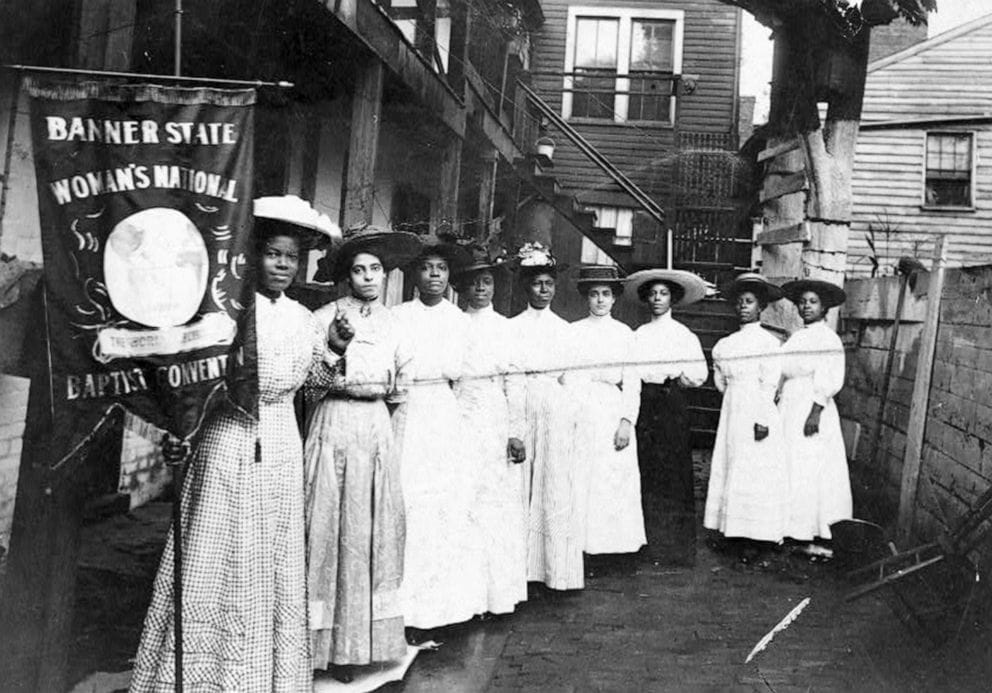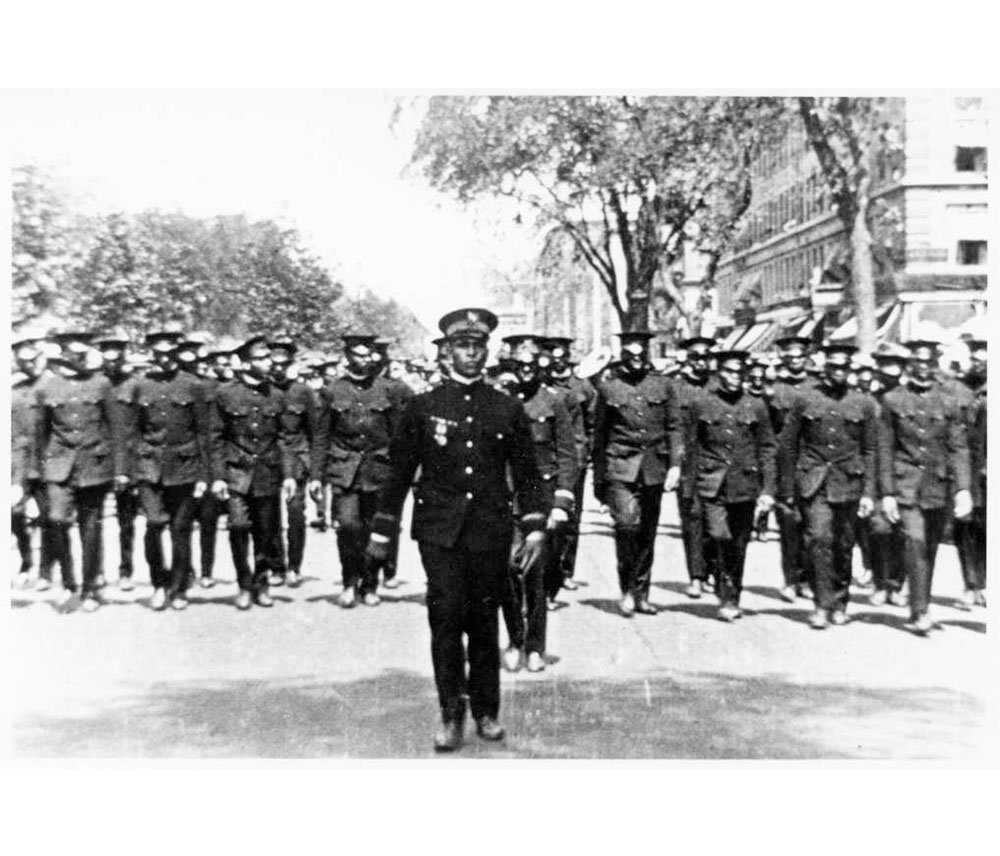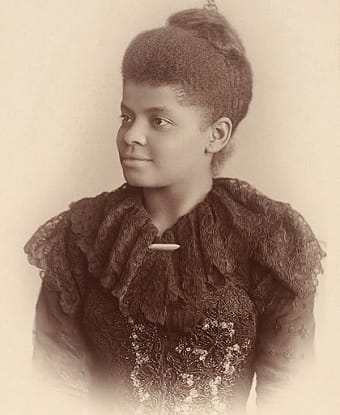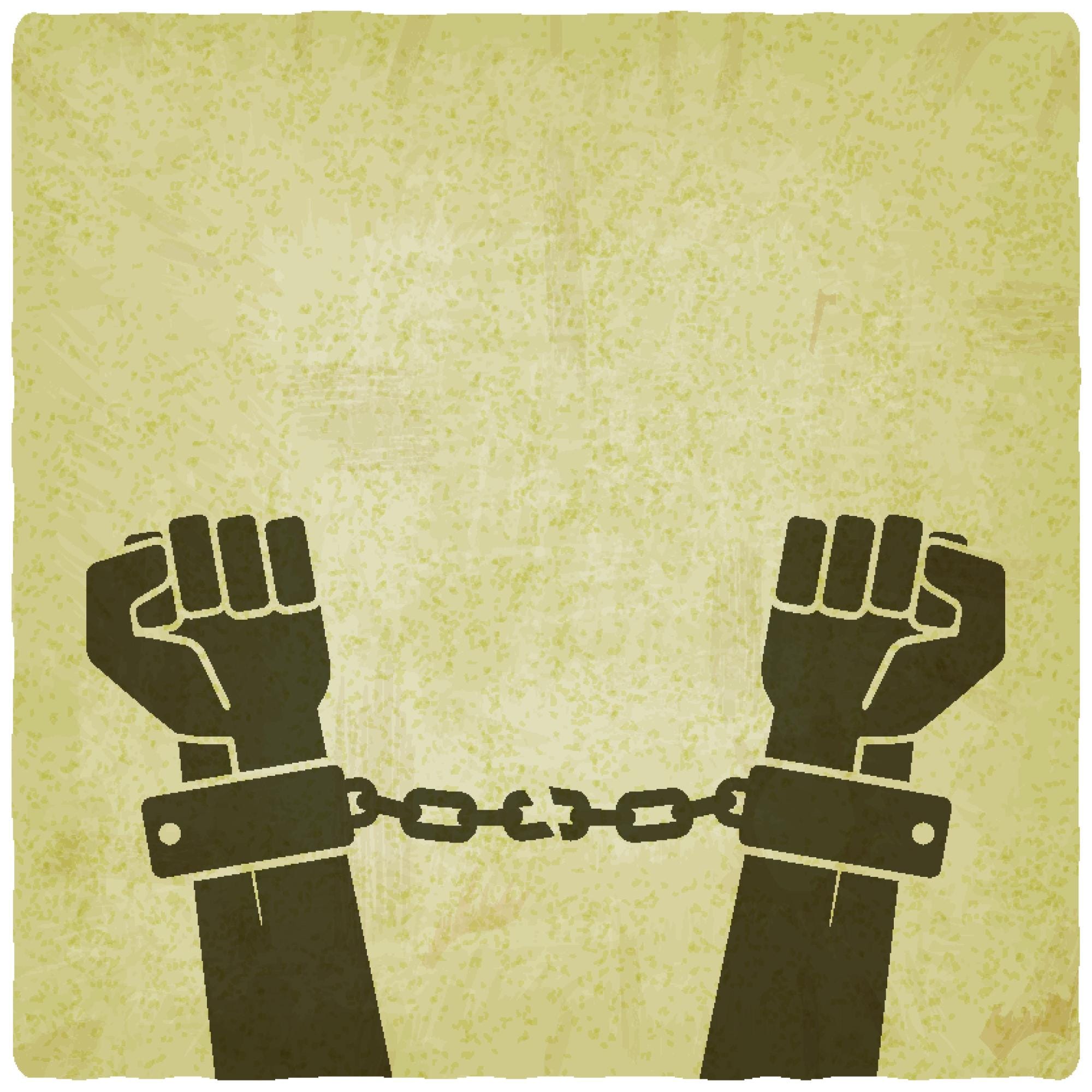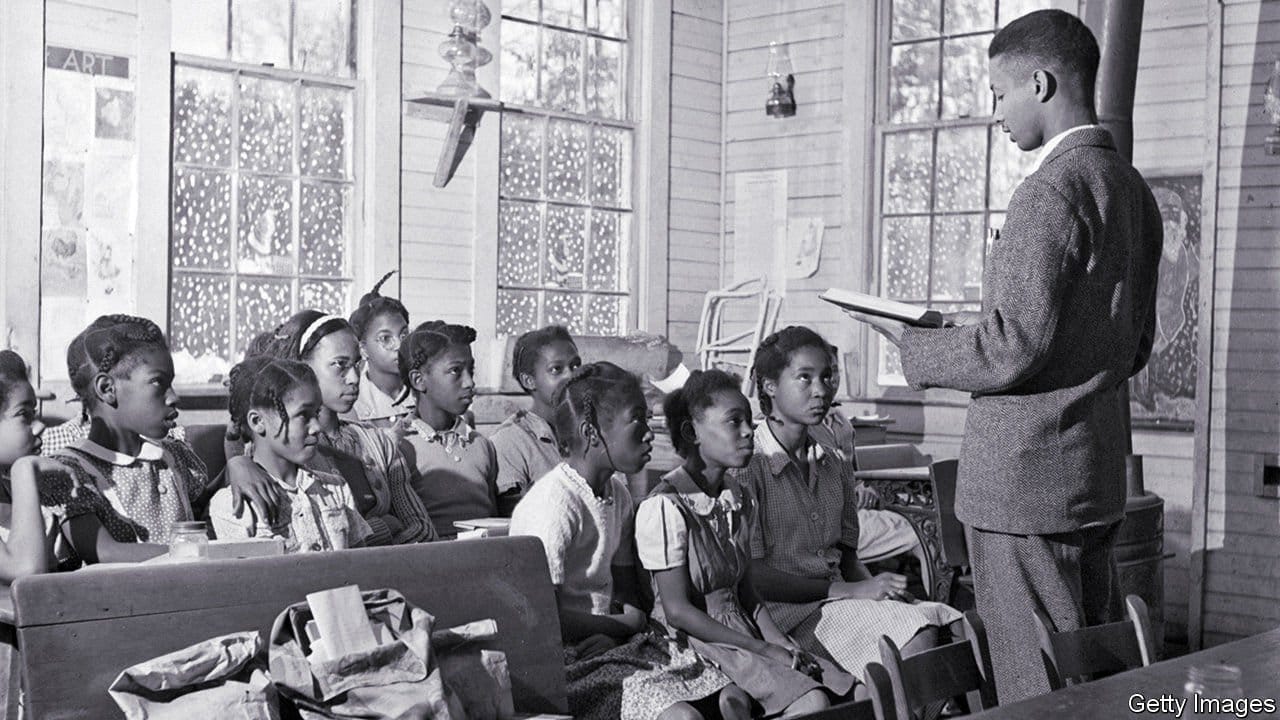The civil-rights movement, which took place largely during the 1950s and 1960s, was a fight for Black people to obtain equal rights under the law in the United States. During this time, activists employed a variety of tactics, such as orchestrating sit-ins, marches, and freedom rides to shed light on racial discrimination and the need for radical change. Key figures associated with the civil-rights movement include: Bayard Rustin, Martin Luther King, Jr., Rosa Parks, Claudette Colvin, and Thurgood Marshall. Key groups associated with the civil-rights movement include: the Little Rock Nine, the Congress of Racial Equality (CORE), the Student Nonviolent Coordinating Committee (SNCC), and the National Association for the Advancement of Colored People (NAACP). Due to the civil-rights movement, the following federal acts were passed: the Civil Rights Act of 1957, the Civil Rights Act of 1960, the Civil Rights Act of 1964, the Voting Rights Act of 1965, and the Civil Rights Act of 1968 (also known as the Fair Housing Act).
Category: Social Movement
Black Women’s Health Networks
Before Roe v. Wade, Black Women’s Health Networks were community-led, intimate spaces for people to receive abortions and other forms of reproductive care. While the police went to great lengths to try and dissolve these networks, community members offered support and strived to protect the identities of abortion providers. These networks were crucial for Black women, given that their sexual choices were associated with deviance, whereas the sexual choices of white women were linked to exploration and choice.
National Council of Negro Women
The National Council of Negro Women (NCNW) is an organization of organizations (composed of 300 campus and community-based sections and 32 national women’s organizations) that enlightens, inspires, and connects more than two million women and men. Its mission is to lead, advocate for, and empower women of African descent, their families, and their communities. NCNW was founded in 1935 by Dr. Mary McLeod Bethune, an influential educator and activist, and for more than 50 years, the iconic Dr. Dorothy Height was president of NCNW. Johnnetta Betsch Cole was elected Chair of NCNW in 2018, ushering in a new era of social activism and continued progress and growth for the organization. Today, NCNW’s programs are grounded on a foundation of critical concerns known as Four for the Future. NCNW promotes education with a special focus on science, technology, engineering, and math; encourages entrepreneurship, financial literacy, and economic stability; educates women about good health and HIV/AIDS; and promotes civic engagement and advocates for sound public policy and social justice.
Suffrage
During the 1820s and 30s, most states granted all white men the right to vote, but the road to suffrage for women was much longer. During the Seneca Falls Convention in 1848, abolitionist activists asserted that women are equal to men and should have the right to vote. Black women, however, were excluded from meetings with organizations like National American Woman Suffrage Association and often had to march separately from white women. Despite this exclusion, Black women played a critical role in getting the 19th Amendment ratified on August 18, 1920, allowing more than eight million women across the United States to vote in elections for the first time.
The United Negro Improvement Association and African Communities League (UNIA)
The United Negro Improvement Association and African Communities League (UNIA) was founded by Marcus Garvey in 1914. UNIA was a Black nationalist organization that centered “racial pride, economic self-sufficiency, and the formation of an independent Black nation in Africa,” according to the website for the PBS documentary series American Experience. By 1920, there were “nearly a thousand local divisions of the UNIA in the United States, the Caribbean, Central America, Canada, and Africa.”
Anti-Lynching
Anti-lynching was an organized movement across the United States to abolish lynching—the act of murdering someone, especially by hanging, for an alleged offense with or without legal trial. One of the leaders of this movement was Ida B. Wells, who, after the lynching of one of her close friends and two other Black men, began documenting lynchings in the South. Black women also formed the Anti-Lynching Crusaders, which, under the guidance of the National Association for the Advancement of Colored People (NAACP), raised money to pass the Dyer Anti-Lynching Bill, which was passed in 1922.
Abolition/Freedom
The abolition movement, which spanned across Europe and the Americas, questioned the morality of slavery and created the momentum necessary to end the transatlantic slave trade and chattel slavery. Notable leaders of the abolition movement included Harriet Tubman, Harriet Beecher Stowe, Sojourner Truth, Frederick Douglas, John Brown, and William Lloyd Garrison. The 13th Amendment, which was passed by Congress on January 31, 1865, and ratified on December 6, 1865, abolished slavery and involuntary servitude—except in the case of punishment for a crime. Due to this loophole and its consequences, abolitionists today are calling for the abolition of the carceral system in its entirety.
Access to Education
After the American Civil War, Black people mobilized to bring public education to the South. The school system, which was at that time segregated by race, was rife with inequalities. Black schools were supported by missionaries, charities, the Freedmen’s Bureau, and most importantly, poor Black people who had an unwavering commitment to building institutions that would serve Black communities.
